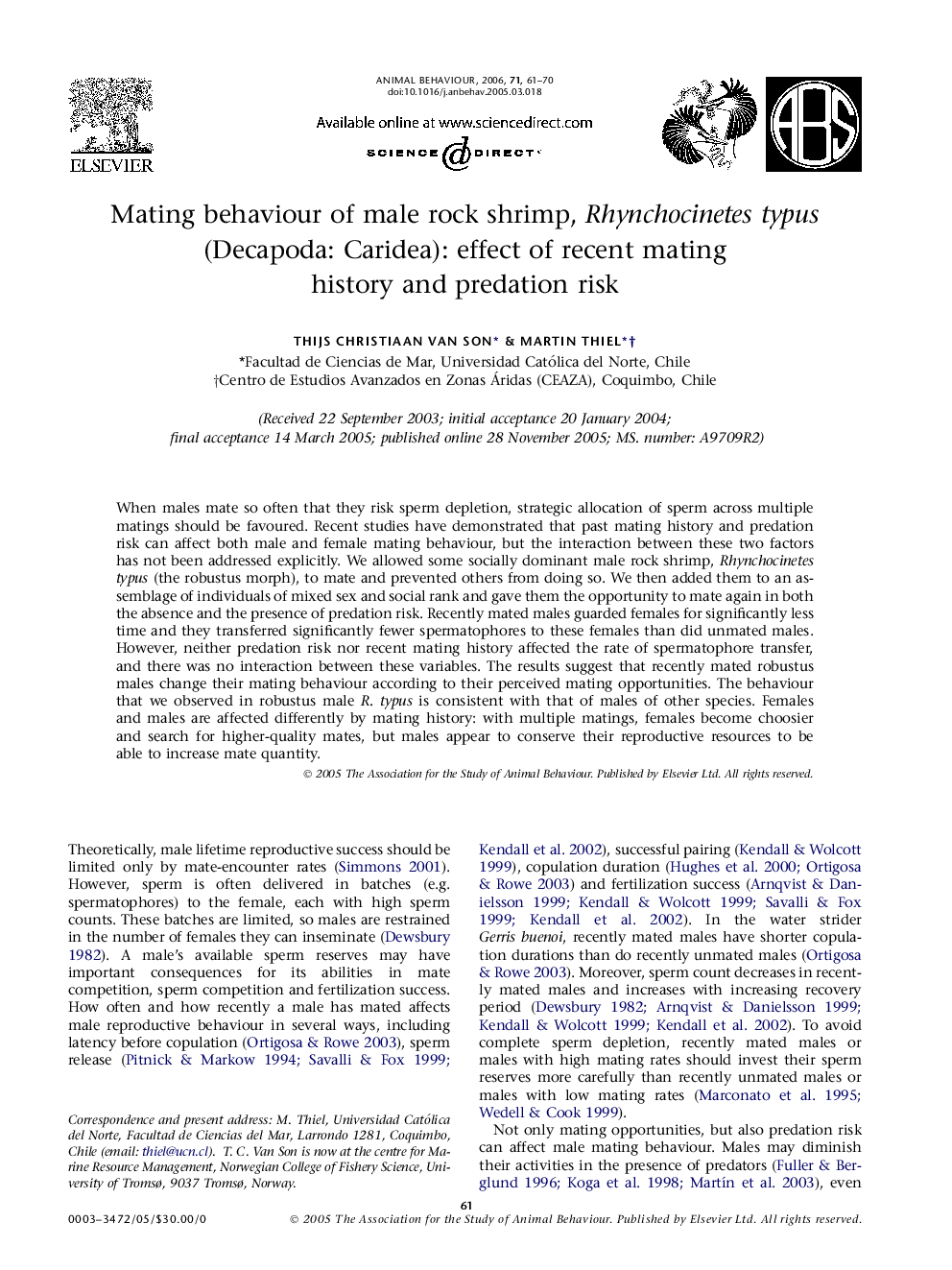| Article ID | Journal | Published Year | Pages | File Type |
|---|---|---|---|---|
| 2418693 | Animal Behaviour | 2006 | 10 Pages |
When males mate so often that they risk sperm depletion, strategic allocation of sperm across multiple matings should be favoured. Recent studies have demonstrated that past mating history and predation risk can affect both male and female mating behaviour, but the interaction between these two factors has not been addressed explicitly. We allowed some socially dominant male rock shrimp, Rhynchocinetes typus (the robustus morph), to mate and prevented others from doing so. We then added them to an assemblage of individuals of mixed sex and social rank and gave them the opportunity to mate again in both the absence and the presence of predation risk. Recently mated males guarded females for significantly less time and they transferred significantly fewer spermatophores to these females than did unmated males. However, neither predation risk nor recent mating history affected the rate of spermatophore transfer, and there was no interaction between these variables. The results suggest that recently mated robustus males change their mating behaviour according to their perceived mating opportunities. The behaviour that we observed in robustus male R. typus is consistent with that of males of other species. Females and males are affected differently by mating history: with multiple matings, females become choosier and search for higher-quality mates, but males appear to conserve their reproductive resources to be able to increase mate quantity.
